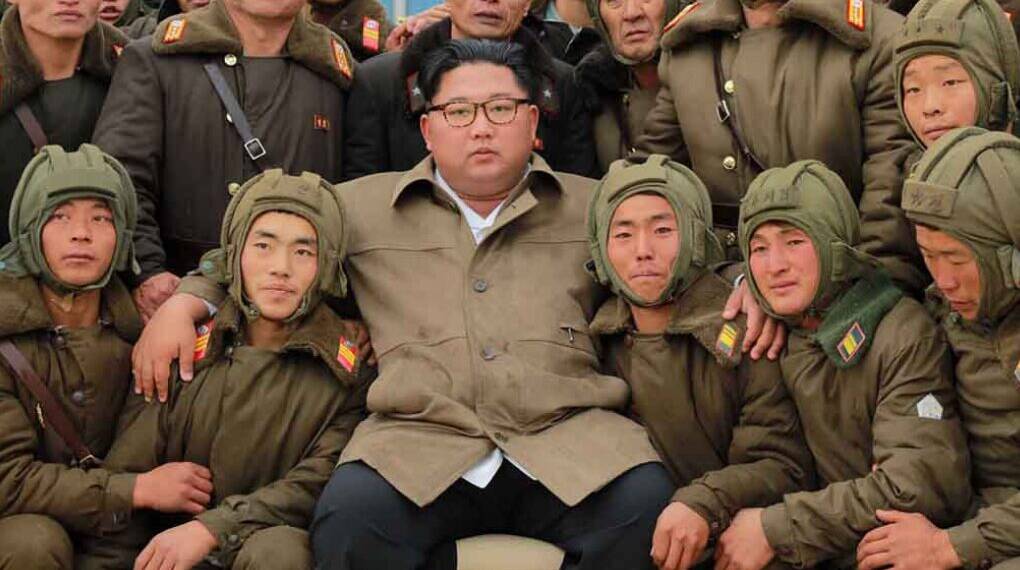North Korea is reportedly preparing to triple its military presence in Russia’s war against Ukraine, potentially deploying an additional 25,000 to 30,000 troops. According to Ukrainian and Western intelligence assessments cited by CNN, this marks a sharp escalation in Pyongyang’s involvement and signals a deeper alignment between two of the world’s most isolated authoritarian regimes.
The move is not merely a tactical reinforcement—it’s a geostrategic shift with profound consequences for global security dynamics, regional balances in East Asia, and the trajectory of the war in Ukraine.
Strategic Motivations: Why North Korea Is All In
North Korea’s support for Russia is driven by a confluence of strategic calculations:
Political Leverage and Global Relevance: Kim Jong Un sees the war as an opportunity to reposition North Korea on the global stage. By siding openly with Moscow, Pyongyang is breaking its traditional isolation and signaling its willingness to engage in international military operations.
Economic and Military Incentives: In return, North Korea is likely receiving advanced military technology, oil, food aid, and diplomatic cover at the UN. The prospect of sanctions relief, even unofficially, is another driver of this cooperation.
Shared Adversaries: Both nations are locked in systemic rivalry with the U.S. and its allies. This partnership is a declaration of a new axis of defiance, united by anti-Western sentiment and shared strategic isolation.
The Scale and Scope of Deployment
If the Ukrainian intelligence assessment holds, the increase to 30,000 troops would represent one of the largest North Korean overseas deployments since the Korean War. Notably:
11,000 North Korean troops were first deployed in late 2024, with at least 4,000 reported casualties.
New troops are expected to be integrated directly into Russian combat units, unlike the previous more isolated deployments.
Russia is reportedly preparing aircraft and naval transport infrastructure, suggesting the logistics for this mass deployment are already underway.
This is not a symbolic act—it is a material contribution to Russia’s war machine.
Tactical Implications on the Battlefield
According to CNN’s report, these troops are expected to bolster Russian forces in occupied Ukrainian territory, particularly during large-scale offensives. This raises key operational concerns:
Human Wave Tactics or Specialized Roles?
With limited interoperability and language barriers, the effectiveness of North Korean troops will depend on whether they are used as shock troops, support units, or in static defensive positions.
Combat Integration:
Early deployments kept North Korean soldiers in separate units. However, new training videos suggest increasing joint exercises, possibly indicating better integration, which may translate into greater battlefield cohesion.
Force Multiplier or Cannon Fodder?
While some reports suggest these troops are “physically well-prepared,” Western analysts caution that they may not be elite forces. Their impact will depend on Russian logistics, training, and command integration.
Wider Geopolitical Implications
1. Erosion of Norms
This unprecedented deployment shatters long-held taboos against interstate mercenary cooperation by state actors. It sets a disturbing precedent for authoritarian regimes offering troops in exchange for political or economic gain.
2. Regional Risks in Asia
The deployment could deplete North Korea’s own defensive posture, making the peninsula more volatile. Moreover, it increases tensions with South Korea and Japan, who now must consider North Korea not just as a missile threat, but as an active participant in foreign conflicts.
3. Russia’s Strategic Desperation
Moscow’s reliance on foreign troops, including North Korean soldiers and Wagner-style mercenaries, highlights its manpower challenges and the costs of prolonged attritional warfare. This reliance could deepen as Ukraine braces for a new Russian offensive involving 110,000 Russian troops near Pokrovsk.
What Does This Mean for Ukraine and the West?
For Kyiv, the North Korean influx presents a complex threat:
Numerical Disadvantage: The sheer scale of additional troops could stretch Ukrainian defensive lines, especially during planned offensives.
Intelligence Challenge: Tracking and interpreting troop movements from a closed society like North Korea remains difficult, complicating battlefield assessments.
For the West, it underscores the emergence of a militarized, anti-Western alliance. The coordination between Russia, North Korea, and even signs of military industrial cooperation with Iran and China, must prompt a re-evaluation of alliance structures and deterrence strategies.
A Turning Point in the Ukraine War?
North Korea’s expanded involvement is not just about manpower—it’s a statement of intent. Kim Jong Un is effectively staking his regime’s prestige and soldiers on Russia’s success in Ukraine. For Putin, it’s a desperate but pragmatic move to keep pressure on Ukrainian forces and avoid further domestic mobilization.
As both nations deepen their partnership, the war risks morphing into a larger geopolitical confrontation, with frontline battles in Ukraine being shaped by decisions made in Pyongyang, Moscow, and beyond.








